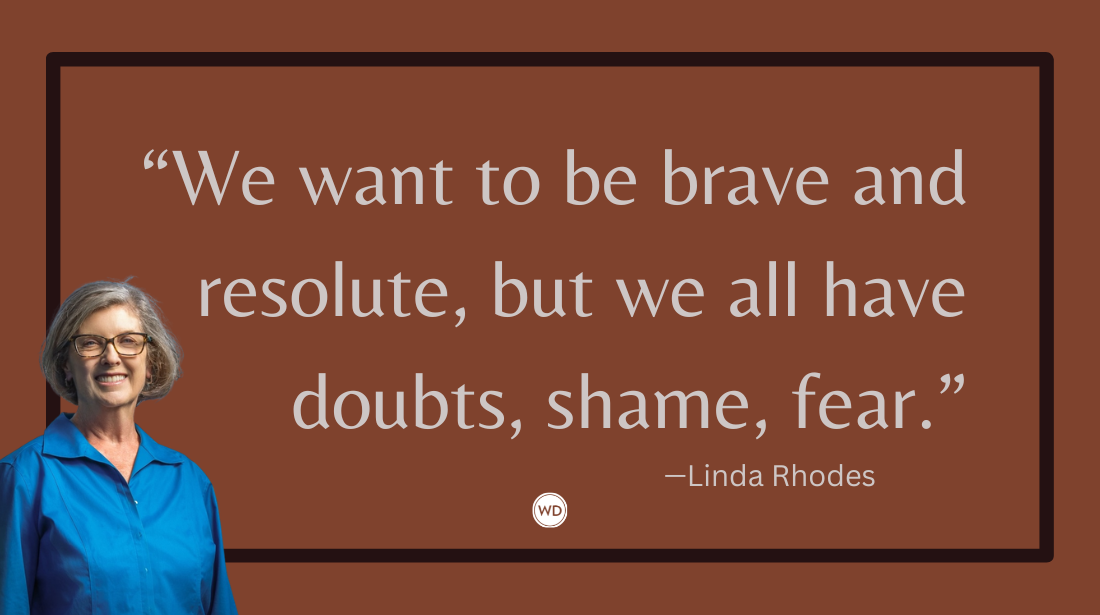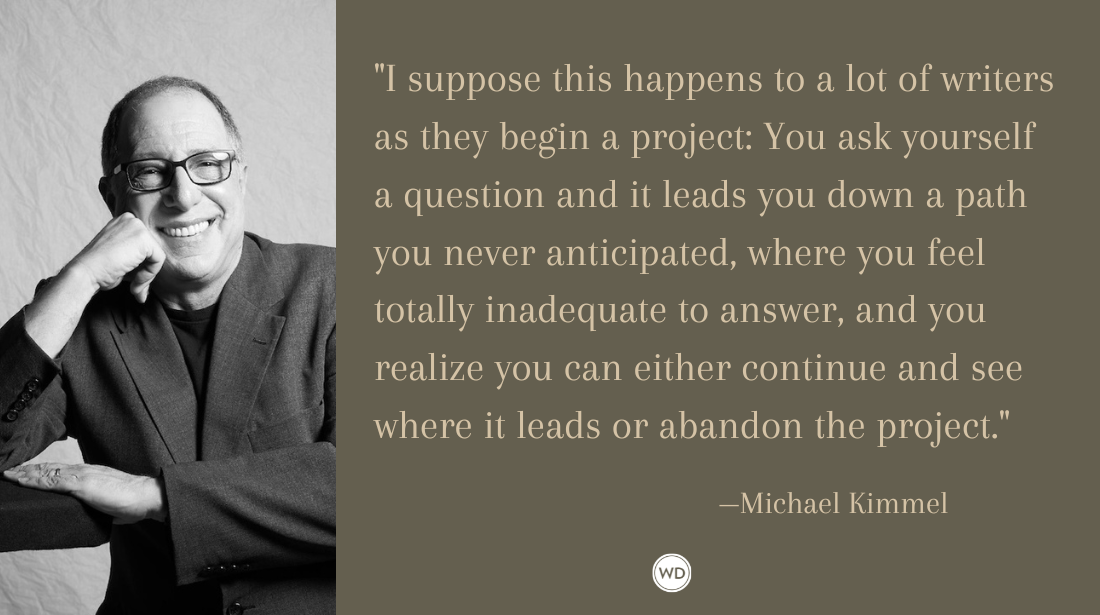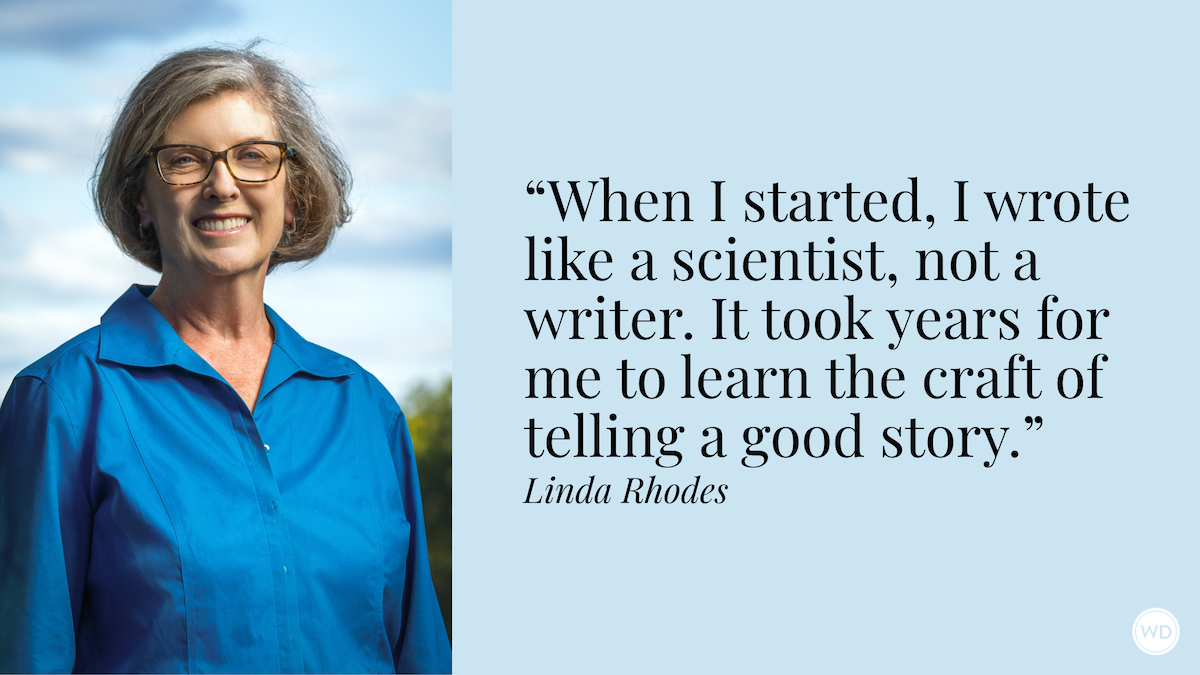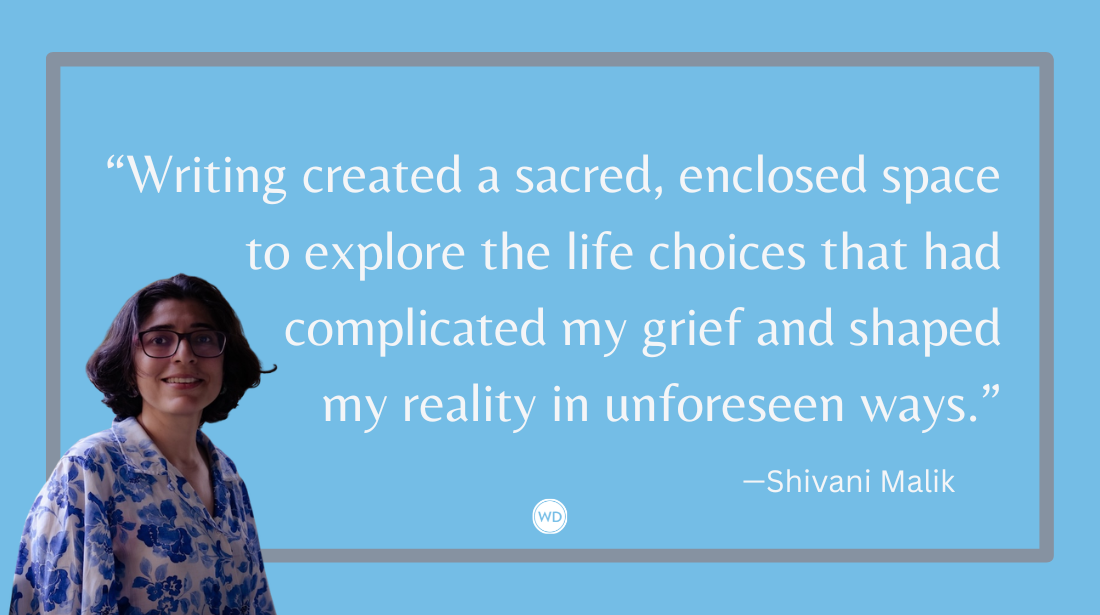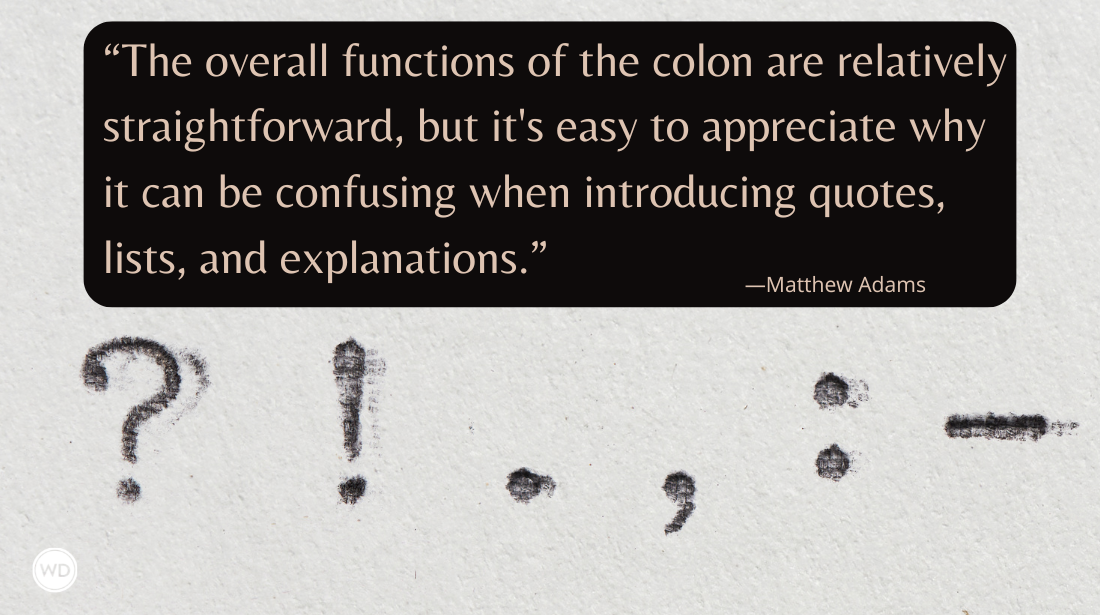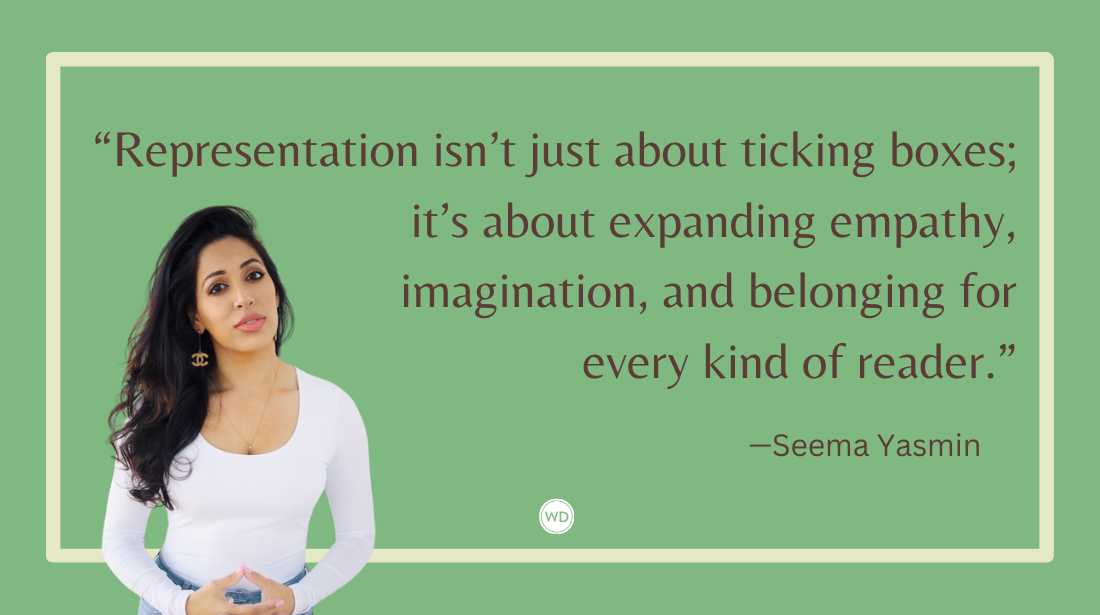Writer’s Digest 94th Annual Competition Memoir/Personal Essay First Place Winner: “The Dead Whale”
Congratulations to Carol Keeley, first-place winner in the Memoir/Personal Essay category of the 94th Annual Writer’s Digest Writing Competition. Here’s the winning essay, “The Dead Whale.”
Congratulations to Carol Keeley, first-place winner in the Memoir/Personal Essay category of the 94th Annual Writer’s Digest Writing Competition. Here’s the winning essay, “The Dead Whale.”
The Dead Whale
by Carol Keeley
Both dogs are leashed as we exit the car. We’d heard there was a dead whale on the beach earlier. It hit me like dread. A dead whale feels so portentous.
It’s my brother’s first walk on sand. Mike was in a neuro-ICU for the past week. He showed up on Thanksgiving eve with a fractured eye socket and brain bleeds, oblivious to his injuries. It’s still a mystery what happened. He was released to in-patient rehab, but instead the three of us are winging it. Typical of our stubborn clan. Mike is the eldest of eight. Our younger brother, Ter, is the upbeat host. I’m the worrier. Today’s goal is a beach walk.
When I called from the airport, Ter said Mike was excited to see me. I got teary. Crisis is an opportunity for repair. I was grateful Mike felt that too.
“I don’t think he remembers,” Ter said gently. Meaning: remembers that we’ve been in conflict for years.
Neither of us can recall when we last saw each other. It might have been our father’s memorial, where family fissures widened. Or that’s my take. We’re a family of ten. We all have our own versions of everything. And stories tend to harden with age.
On the beach, I see a sad mountain of grey, the elegiac tail. Surrounding the mythic rib cage are marine biologists in bright orange waders. A giant crane bucks as it lowers its shovel. My brothers head toward the water, where the sand will be more firm for Mike’s walk. Ter pulls the barking dogs. I head to the whale.
This time with my brothers has been precious, as well as bruised. It's hard to see my big brother so frail, but it invites a rare openness. He shares stories new to me. Ugly stories about our father, but also old hurts from high school and life.
“I was never the smartest guy in the room,” Mike says, “or the most athletic, or handsome, or socially graceful.”
I had no idea that he felt such quiet exiles—ones I feel, too. It’s the opposite of how I see him. He’s the pioneering eldest son. He’s the first openly gay deputy mayor in the U.S. He oversaw the budget for Los Angeles. To me, he’s always been dazzling.
I ask whether that sense of not fitting in related to being gay—long before gay rights or parades. He shrugs, fading. I leave space, mindful his brain is still healing. And we don’t usually have such conversations.
The wound of not belonging seems to infect our family. A niece told me her dad insists none of us think he’s smart. Another brother is sure he’s called fat. My labels are broken and failure. We can’t know, of course, the true source of such shame splinters, though they’re common in alcoholic families. We seem to savage ourselves with judgments we ascribe to each other. No wonder connection feels thorny and fraught.
“We are the family of hurt feelings,” Ter said once. Hurt can shapeshift into bitter distance and mistrust. Into warring narratives.
They detached the head earlier, a biologist explains. The whale, a humpback, is too huge to remove without sectioning. Now a crane digs into the creature’s belly, hoisting buckets of gooey organs.
“Most dead whales are calves,” a dog-walker interrupts her, addressing me. “They get separated from their mothers during storms and can’t fend on their own.”
“Is that what you think happened?” I ask the biologist.
“Calves wean after a year,” she says. “This one was two and had a full belly of food, so seemed to be faring well.”
“It’s the wind farms,” a woman says, tugging her sweater. The biologist pauses before responding.
Yesterday morning, Ter dropped a stack of books on the kitchen counter, all about death and dying. I welcomed the topic. But it quickly veered into climate change, then a battle between his Catholicism and my Buddhism. Mike paced the kitchen as Ter and I argued, his hands clasped behind his back. Ter insisted that Buddhism lacks a creation story, so is somehow illegitimate. It’s not a religion, I said, confused.
“Just answer this,” Ter said, “Who created the universe?”
“Why is that the litmus test?” I laughed. “That’s random.”
The premise was absurd, but I delight in such arguments, and I knew we didn’t actually disagree. We were just in the wrong starting block. I tried to describe the view, not unique to Buddhism, that everything is an interwoven web of continual, mutual change. This is as true of a single tree—which depends on the soil and weather and industries—as it is of families and moods, our planet and this very moment.
“Let her finish,” Mike said, when Ter interrupted me. Then, “Don’t both speak at once.” Then, “No, that’s not what he said,” when I distorted something.
This delighted me, too. I’d forgotten how Mike used to referee our heated arguments as kids. His deep listening helped transpose sibling tension into something greater than its warring parts.
“Who made all of this?” Ter demanded, waving his arms.
“I don’t know,” I said. “But we don’t need to agree on how it was generated to share a sense that it’s sacred and worthy of protection.”
Mike stopped pacing. “I agree,” he said.
I nearly levitated with joy.
The differences in our family are vast—of politics, faith, sexuality, and income. In times of intense conflict, Mike would oversee a discussion, then conduct a vote. We are a messy democracy. It’s glorious when it works. But it’s felt brittle since our father’s death. I fear we’re as cleaved as the nation is by siloed certainties, by talking about instead of to one another.
I watch as the biologists take tissue samples, mark slippery bags, then drop them into buckets on a several rows of white tables.
They won’t know the cause of death until they do a full necropsy, the biologist says, if then. It’s often a vessel strike. There are many more shipping boats now. But this whale had no signs of an impact injury. Propellor gashes are obvious. All these scientists are volunteers, many from out of state. “People assume we have tons of funding,” the biologist tells me. “We don’t. We just care about this work and these animals.”
I leave the whale to catch up with my brothers down the beach. In the distance, Mike looks fragile, with his shuffling walk and bent head. Ter is animated beside him, juggling the dogs as they strain their leashes. I used to call my six brothers the Sequoias. All noble, sheltering wonders.
“What did I miss?” I ask eagerly.
“We were talking about you, actually,” Ter says. They both look grim.
My heart wobbles with fresh dread.
I believe our father is the crux of the family ruptures, not each other. After his death, I wrote through my fear of him, to break the spell of dark secrets. There were reactions. Terrible things were said to and about me. That’s my take on it. But Ter says the family felt rejected and judged. That I didn’t go to Thanksgivings anymore was hurtful.
No one tested any of these theories. They just grew into chasms on their own.
We head back up the beach, toward the dead whale. They’d been discussing the time two brothers came to my small town with our father. The root system for this wound feels more vast than the incident. We walk into the wind. It quickly goes sour.
They had every right to come, Mike and Ter argue. A niece lives here, too. Who was I to say her father couldn’t visit her? Of course, I say. I never said or thought that. I wasn’t told they were coming, so had other visitors. That’s why I didn’t see them. I can feel the tension as I walk alongside them. This fallout has festered for years.
Again, the argument seems to be in the wrong starting block. The conflict is embedded in a faux premise. Defensive anger climbs on all sides, including mine. So far this week, we’ve been able to discuss even difficult things with the love I know lies underneath, until this one conversation. So I stubbornly hope.
“Look, I want to do the repair,” I say. “I do. But this doesn’t feel like the right time or place. Can we pause for now?”
“We didn’t know about you and Dad then,” Mike says curtly.
I stop walking, try to quiet my rioting heart. Then say, “I assumed you all knew and I didn’t matter.”
“That’s ridiculous,” they both hurl into the wind, as we draw near the dead whale again.
One of the fruits of a Buddhist practice is learning to question the perceptions we mistake for reality, to notice when we constrict. As anger surges, I pause to look at it. It’s tempting to reenter the story, the one that feeds my sense of grievance. But instead I ask, what’s being resisted? What feeling is that story constructed to avoid? Anger is often a shield for shame or fear.
That’s when I see that behind my heat-blaze is the sense of not mattering enough to believe, to protect. Touching this young injury frees me. The anger dissipates. I breathe along with the ocean’s pulse, softening. My brothers have supported me in countless generous ways, so their reaction in the moment makes sense, too.
“There’s no hierarchy of pain,” I tell them when we try, and fail, to have the conversation again days later. “Dad impacted all of us. Your hurt matters too.”
It’s not clear what killed this whale, the biologist tells a fresh crowd, as Ter wrangles the frantic dogs. This humpback had been dead for weeks. Most of her wounds, including a broken tooth, were from banging up and down the coast as a corpse.
Dead whales keep washing up on this shoreline. They’re taking samples to look for infections or parasites, for any possible cause, the biologist explains. But in many cases lately, they’ve unable determine a definitive cause of death. No, they don’t think it’s wind farms, she says to another beach walker. The biologist is too polite to say that claim is false and has been liked to the fossil fuel industry. That it persists despite being discredited.
What feeling is the wind farm story constructed to avoid? That we’re all interdependent. That we are fragile and finite and this planet is our home, the ocean our lungs, the whales our relatives.
There was a morning news story about gay men being drugged and robbed in New York. But Mike wasn’t robbed. It’s still unclear what happened. It might have been a spiked joint or the meds he was taking for pain. It could have been many things. It’s a troubling mystery. I long to know, if only to protect him.
Climate change has shifted food sources closer to shores, the biologist explains again as more gather, and cargo shipping has spiked since Covid. The causes for this animal’s death aren’t clear—they might never be—but the tragedy is.
We watch the crane lower into the whale’s cavity again and lift its ghastly offering to the sky. We don’t have to agree on causes to know what’s worth protecting. That’s why I’m here. I couldn’t bear to lose any of my beloved seven siblings.




